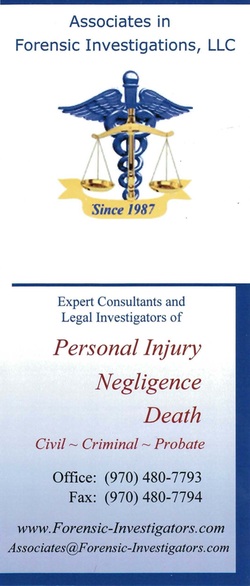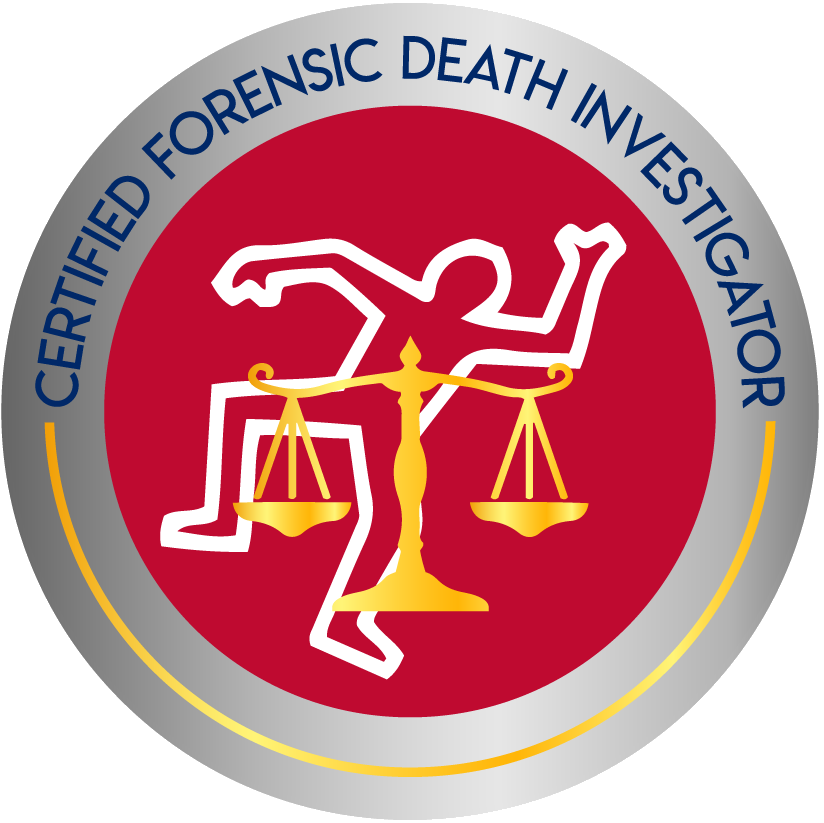
Equivocal Death Investigations
Karen S. Beers, BSW, CCDI and Dean A. Beers, CLI, CCDI
Associates in Forensic Investigations, LLC
From Voltaire, “To the living we owe respect. To the dead we owe only the truth.” That is the purpose of an Equivocal Death Analysis and Investigation (EDA or EDI); collectively referred to as equivocal death case review. One of the most common questions in death investigation is: "Was it a Suicide?" This question may often go unanswered due to lack of sufficient official investigation or attention to evidence. This leaves the possibility of closure for the families impossible, particularly if foul play is suspected, or even an accident. The wrong determination can also result in benefits, such as life insurance or workers’ compensation, underpaid - or worse, denied.
Download and read the full article < download article >
About the authors:
Dean is a Certified Legal Investigator and expert in criminal defense homicide and civil equivocal death investigations. He has lectured extensively and authored multiple articles, peer-reviewed white papers, and provided expert testimony on Protocols of Private Investigation, and Forensic Investigation of Injury Pattern Analysis. He authored Professional Locate Investigations and recently completed Practical Methods for Legal Investigations: Concepts and Protocols in Civil and Criminal Cases, released by CRC Press in February 2011. Their subject matter expertise is Death Investigation and Injury Causation.
In addition, he is actively involved in several associations for our profession. This includes the past Board Chairman, and Life Member, of the Professional Private Investigators Association of Colorado, Region 6 CLI Representative of the National Association of Legal Investigators with a column ‘Forensic Focus’ in NALI's trade magazine ‘The Legal Investigator’, Secretary of the National Council of Investigation and Security Services, Member and Forensic Investigations Advisor of the Criminal Defense Investigation Training Council, Governor of the Americas for the World Association of Detectives, National Defender Investigators Association, Affiliate Consultant member of the National Association of Medical Examiners, International Association for Identification, and Mensa USA.
Karen earned her Bachelor's in Social Work from Colorado State University (Magna Cum Laude). Her background, education and experience with victim advocacy and counseling are valuable assets in working with families and victims of traumatic events. Possessing strong interpersonal skills and ability to reach out to people, she brings a unique perspective to cases, particularly lifestyle matters and mitigation. Her death investigation training and experience, together with her social work and general investigative skills and experience, are an asset to the medicolegal and criminal defense investigative processes. She is also a member of the Criminal Defense Investigation Training Council and National Defender Investigators Association.
She has been professionally published with 'The Basics of an Autopsy Report' (PI Magazine, Dec 2011), 'Understanding Suicide and its Prevention – Equivocal Death Investigations' (PursuitMag.com, Dec 2011), and 'False Confessions and Accusations' (PursuitMag.com, Feb 2012).
Their national consultation and investigation agency is based in Colorado and is primarily focused on Expert Consultations and Legal Investigations of Personal Injury, Negligence & Death in Civil, Criminal and Probate matters; including Critical Case Analysis. They are proud parents of Jeberly and Winter, and have three grandchildren - Jacee, and identical twin grandsons Gage and Cash.
From Karen, which speaks of our agency...
"Equivocal Death Investigations and Analysis. Sometimes the death of a loved one leaves behind many unanswered questions. Helping clients understand the investigative process, answer questions to help ease their minds are the main goals of a death analysis. Due to the prevalence of Equivocal Death Analysis, we now offer a flat-fee to further help families in their time of need. Helping clients with lingering issues surrounding a loved one’s death is difficult yet necessary to assist in resolving issues that can sometimes take years. Hearing the words, "Thank you, you have helped me to understand" whatever questions they may have had tucked inside their minds is very rewarding."


